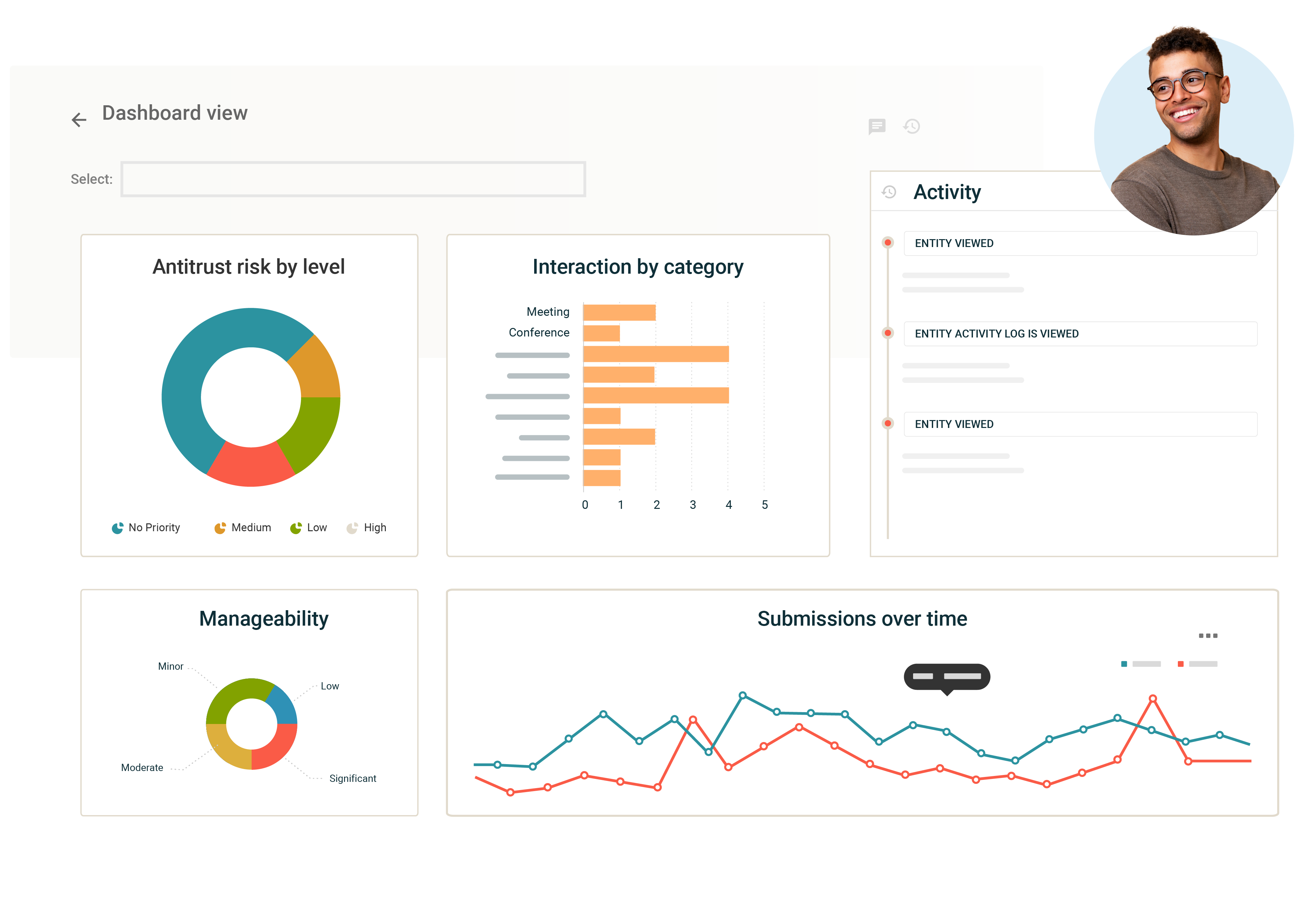Regulations
Compliance Solutions for the UFLPA
Benefit from a centralized, risk-based approach to compliance with Anti-forced Labour Regulations, including the Uyghur Forced Labor Prevention Act (UFLPA). Gain a thorough understanding of your overall risk posture regarding forced labor, particularly from the Xinjiang region, and operate with the confidence that you have robust and effective procedures in place.
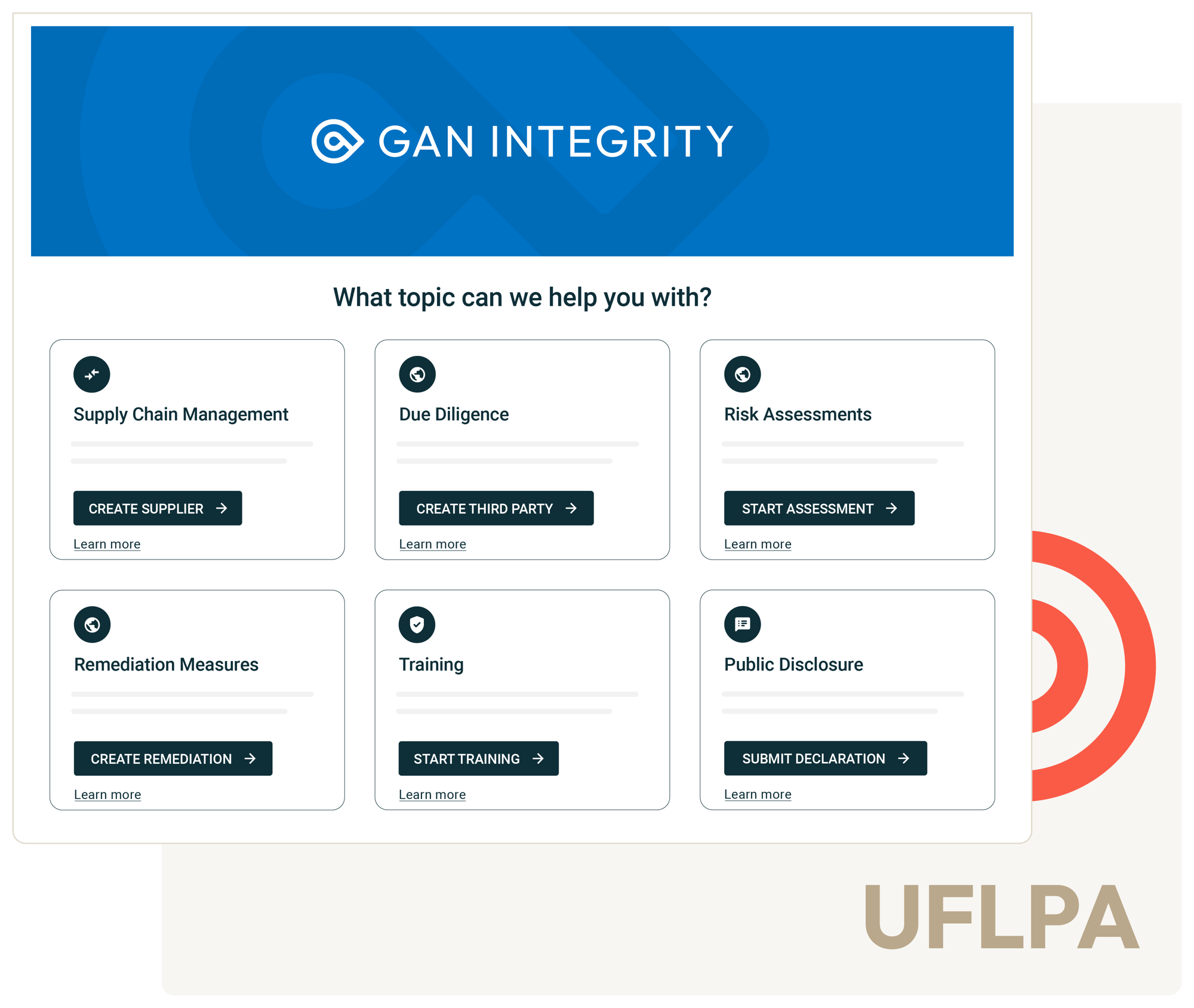
Why GAN Integrity
GAN Integrity is how compliance teams get the tools and expertise to stay ahead of ESG risk. With less effort but more reach, you finally get a better way to do your good work.
See everything – Gain a comprehensive view of your forced labor risks in one centralized platform.
Adapt to anything – Utilize a dynamic solution that adapts to regulatory changes and evolves with your program.
Get all the help you need – Receive dedicated support from GAN Integrity’s team of experts.
Understanding the Uyghur Forced Labor Prevention Act
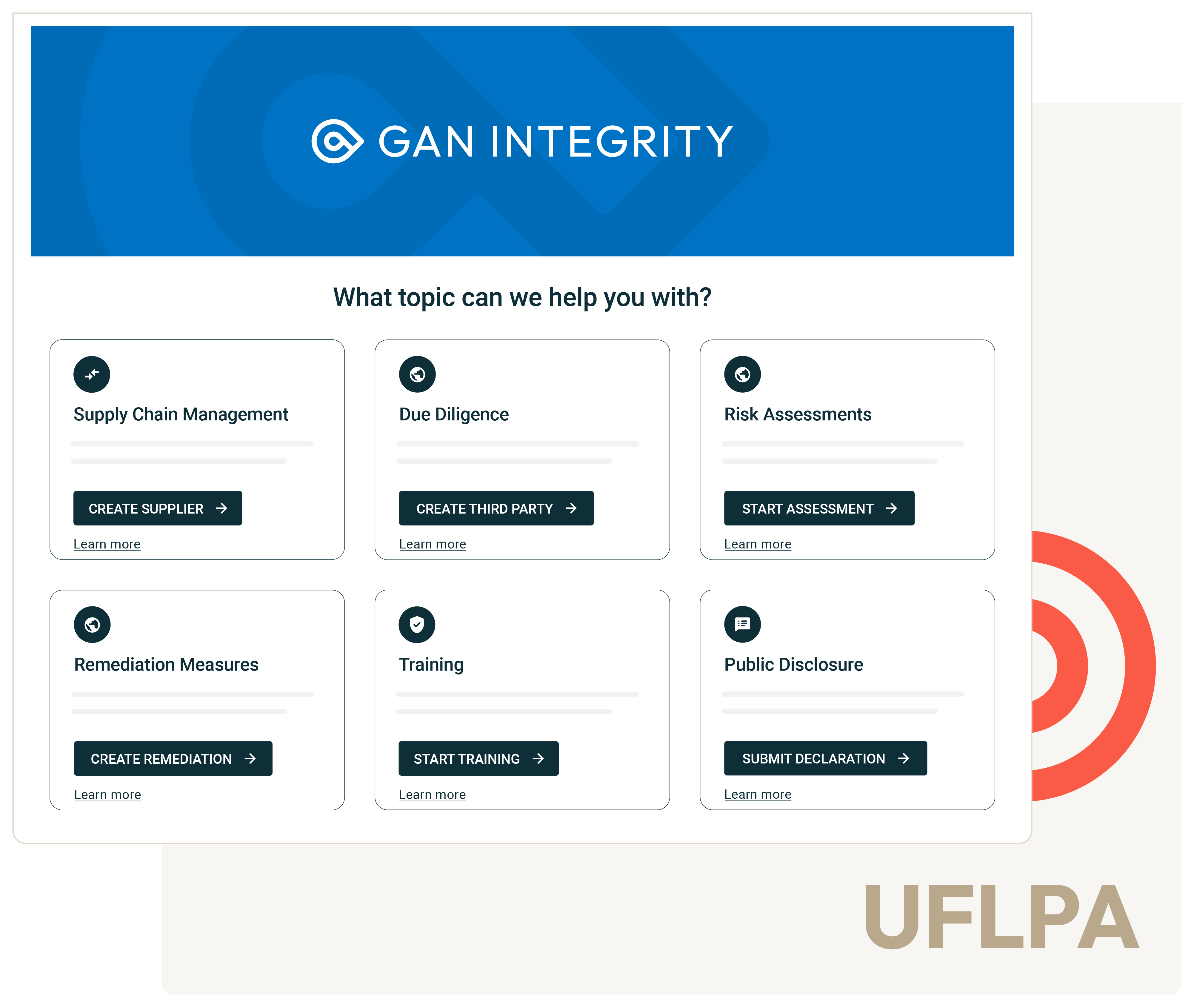
The Uyghur Forced Labor Prevention Act (UFLPA) is a U.S. legislation aimed at preventing the importation of goods made with forced labor from the Xinjiang Uyghur Autonomous Region (XUAR) in China. The Act establishes a rebuttable presumption that any goods mined, produced, or manufactured wholly or in part in XUAR are made with forced labor, and therefore, prohibited from importation into the United States.
Under this Act, companies must demonstrate that their supply chains are free from forced labor, particularly if they source from regions known for human rights abuses.
What Constitutes Forced Labor Under the UFLPA?
The Act defines forced labor as all work or service which is exacted from any person under the menace of any penalty and for which the person has not offered themselves voluntarily. This includes forced labor practices affecting the Uyghur population and other ethnic and religious minorities in China.
Key Provisions of the UFLPA
Rebuttable Presumption
Any goods produced wholly or in part in the Xinjiang region are presumed to be made with forced labor and are therefore prohibited from entering the U.S.
Clear and Convincing Evidence
Importers must provide clear and convincing evidence that goods produced in Xinjiang are not made with forced labor to rebut the presumption.
Due Diligence and Supply Chain Transparency
Companies must conduct thorough due diligence and maintain transparent supply chains to ensure compliance.
Documentation and Reporting
Importers must be prepared to respond to U.S. Customs and Border Protection (CBP) inquiries and provide documentation demonstrating that goods are not produced with forced labor.
The Importance of Compliance With The UFLPA
Under the Uyghur Forced Labor Prevention Act (UFLPA), companies face significant penalties for non-compliance, including the detention, exclusion, or seizure of goods suspected to be produced with forced labor.
Financial penalties are severe and can escalate with repeated violations. Additionally, companies risk reputational damage, loss of importing privileges, and legal consequences for their directors and officers.
To avoid these penalties, companies must implement robust due diligence, supply chain tracing, and compliance documentation processes to prove their goods are not linked to forced labor
Implementing a Compliance Program for UFLPA
The UFLPA requires companies to take comprehensive measures to prevent forced labor in their supply chains. This includes:
Supply Chain Mapping: Identify all suppliers and their sources of materials, especially those connected to XUAR.
Due Diligence: Conduct thorough audits and assessments of suppliers to ensure they comply with labor standards.
Risk Assessment: Identify and mitigate risks of forced labor within operations and supply chains.
Remediation Measures: Develop and implement measures to address any instances of forced labor found.
Training: Provide training for employees and suppliers on forced labor risks and compliance requirements.
Public Disclosure: Maintain transparency by publicly disclosing efforts to combat forced labor in supply chains, and be prepared to respond to U.S. Customs and Border Protection (CBP) inquiries and provide comprehensive documentation demonstrating compliance.
GAN Integrity for UFLPA Compliance
GAN Integrity’s platform is designed to support companies in maintaining robust ESG compliance programs, including anti-forced labor.
Policy Management
Manage approvals, distribution, and attestation of policies, along with centralized portals for easy access to the latest policies and procedures. Capabilities include:
- Regulatory change management: Identify policies that require updates and timely distribution to employees in response to regulatory changes.
- Automated workflow: Optimize the review and approval process for policies, operating procedures, and work instructions with automated workflows.
- Comprehensive reporting and documentation: Maintain a full audit trail and generate detailed reports to provide clear evidence of compliance to stakeholders and regulators.
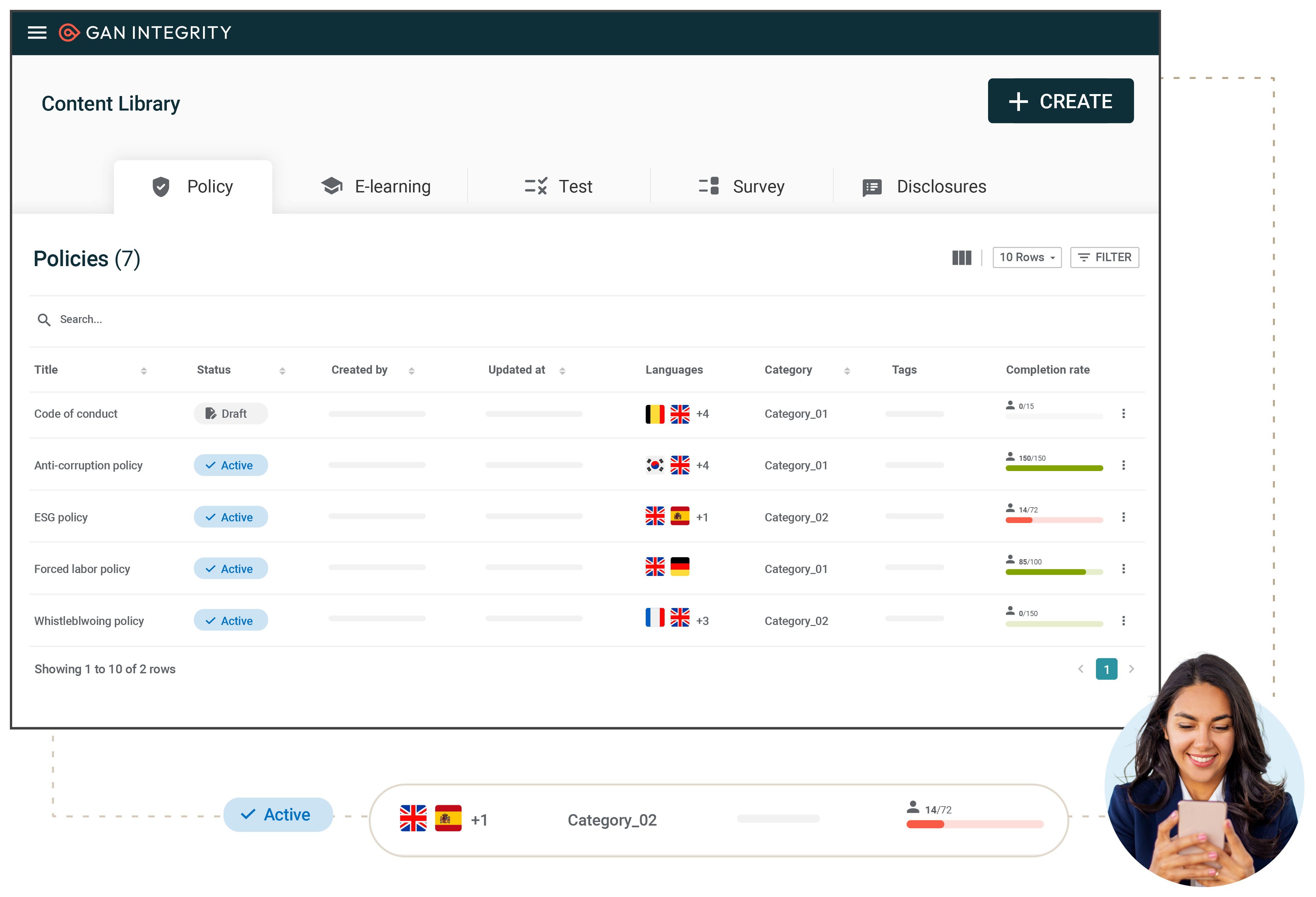
Third-Party Risk Management
Manage risks associated with third parties and assess these against relevant laws and organizational standards. Capabilities include:
- Lifecycle management: Automated workflows for onboarding, risk assessment, issue management, monitoring and off-boarding.
- Integrated due diligence: Initial and ongoing screening of third parties for sanctions, adverse media, forced labor, ESG and more.
- Reporting and analytics: Executive dashboards and reports: Consolidate third party data to identify risks and potential exposure to your organization.
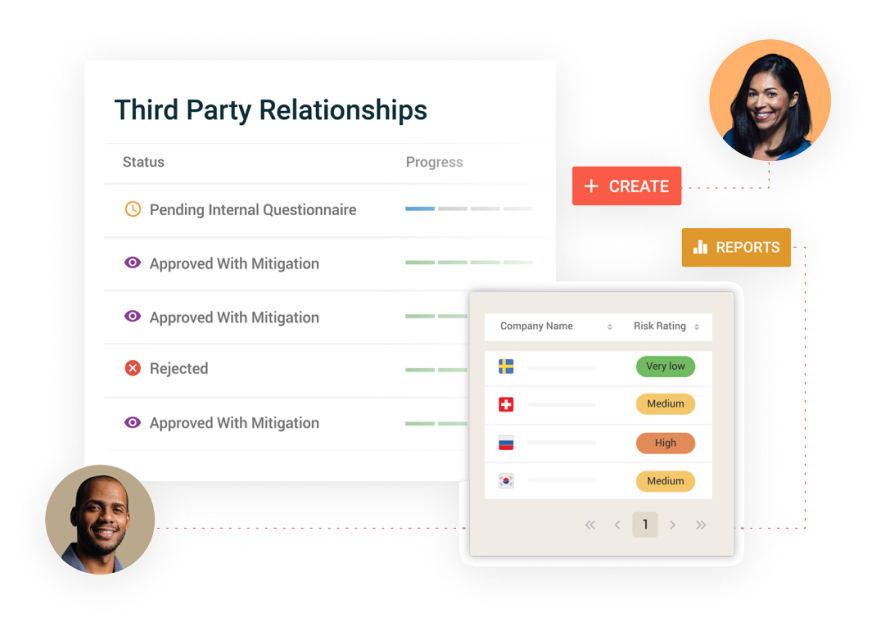
Training
Deliver training and awareness compliance content to employees and key stakeholders. Capabilities include:
- User governance: Automatically enroll new employees in the right programs and seamlessly roll out new training initiatives.
- Embedded reporting and analytics: Customizable dashboards to track program performance and proactively address gaps.
- Risk-based training and communications: Segment employees based on risk profiles to tailor the content and frequency of training and communications.Equip your team with the knowledge to identify and address forced labor risks.
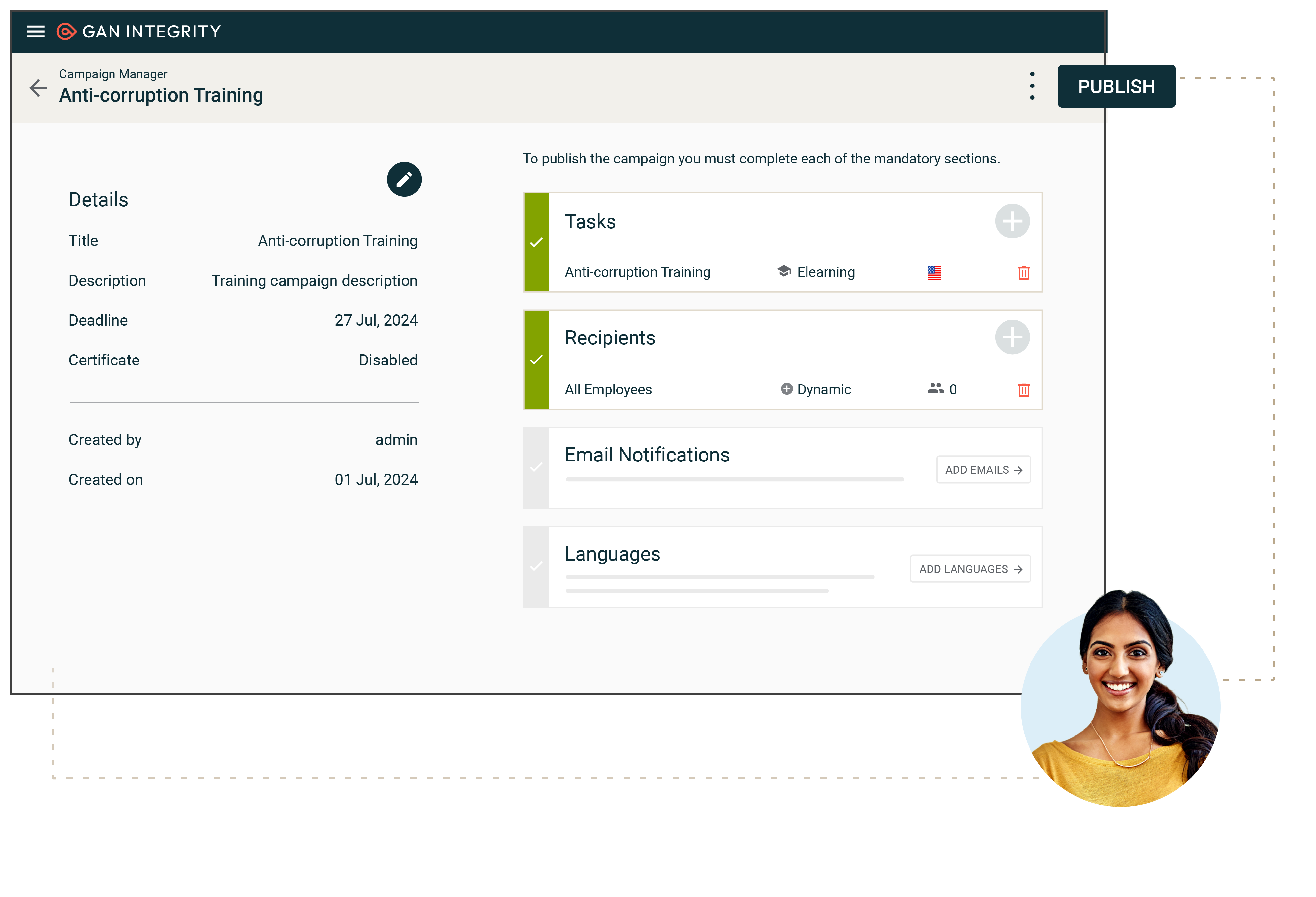
Supply Chain Due Diligence
Enhance supply chain risk management by consolidating processes, identifying and mitigating risks, and integrating data from various risk intelligence and business systems. Capabilities include:
- Automated risk assessments and continuous monitoring: Monitor suppliers continuously for adverse media, sanctions lists, PEP lists, forced labor, and ESG (Environmental, Social, and Governance) issues.
- High-risk supplier identification and management: Identify high-risk suppliers, manage them effectively, and track actions and mitigations to ensure compliance.
- Integrated due diligence assessments: Perform thorough due diligence across your business operations and workflows for seamless integration and enhanced efficiency.
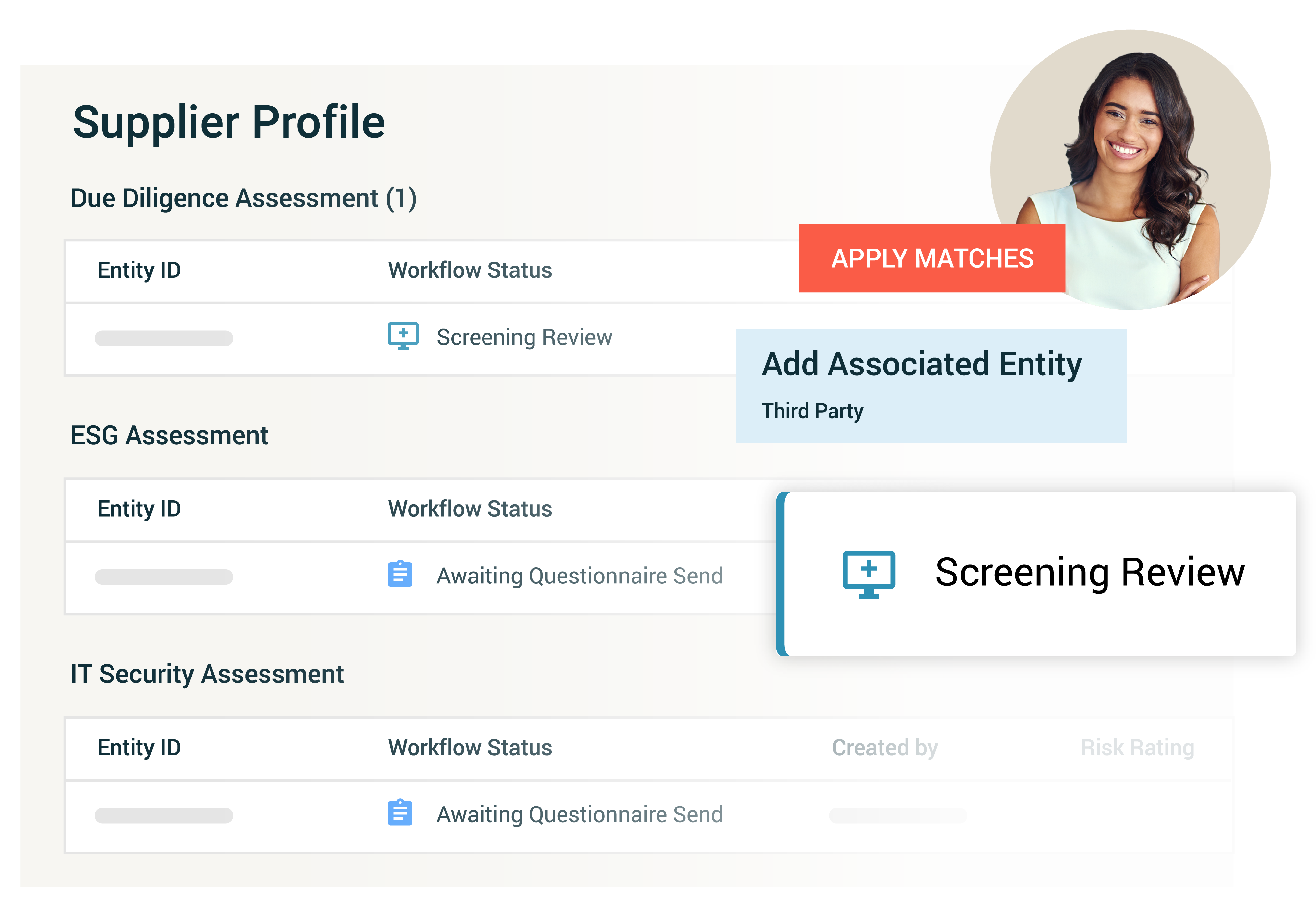
Reporting and Documentation
See everything across your compliance program, and generate reports and dashboards to demonstrate compliance program effectiveness to stakeholders and evidence to regulators. Capabilities include:
- Reporting and analytics: Executive, role-based dashboards to review the effectiveness of your compliance program initiatives.
- Evidence-based compliance: Maintain an auditable trail of all activity with the platform’s integrated and automated audit log.
- Compliance insights: See risk trends and patterns within your program, including third-party and supply chain risk, policies and disclosures.
